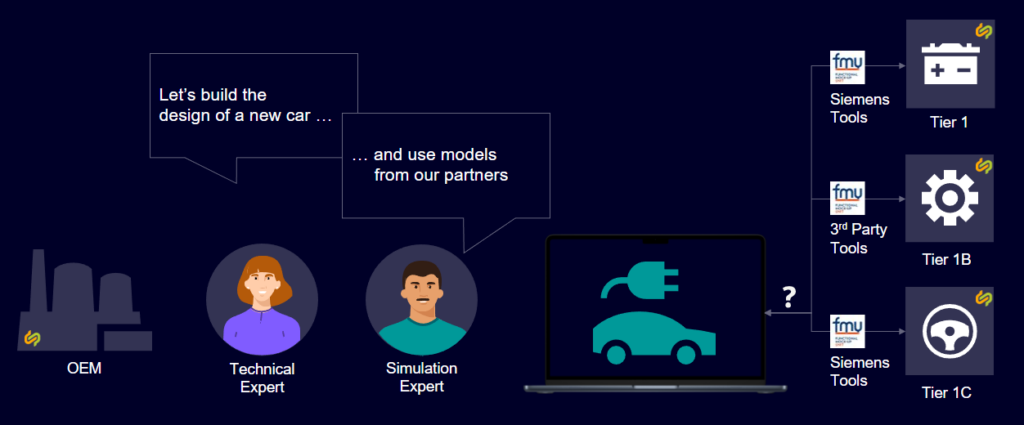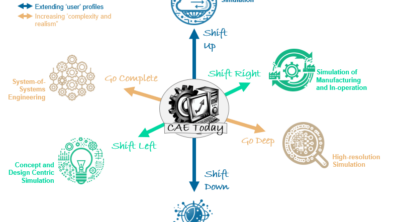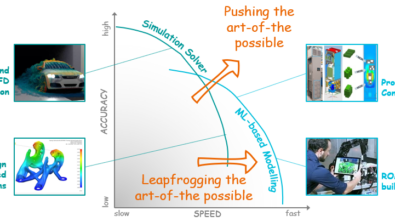Simcenter meets Catena-X

Transforming the Automotive Industry
In the transition from the well-established combustion engine; that has transported the world for more than 100 years, to electric vehicles, the automotive industry finds itself facing daunting new challenges.
Not only does it need to move toward a more circular economy to address the scarcity of resources or track the carbon footprint of the whole production chain, but it is also required to transform faster than ever before to meet the goal of being climate-neutral by 2050.
What is the Catena-X project?
The Catena-X project has been initiated to support and speed-up the transformation of the automotive industry. “Catena-X is the first collaborative, open data ecosystem for the automotive industry of the future. All players are networked in end-to-end value chains, in which all partners are on an equal ground, have sovereign control over their data and no lock-in effects occur, which provides a sustainable solution for the digitalization of supply chains, especially for medium-sized and small companies, and supports the cooperation and collaboration of market participants and competitors.”
The question now is to explore how the Simcenter Portfolio can contribute to help Catena-X reach their goals.
Model Based Development – a use case
The answer is in the realization of the use case “Model Based Development” in which the Siemens Software team in Catena-X tackles the challenge of enhancing the collaboration among OEM and the different Tier-n in the development of new products.
The use case can be described in 2 steps: Step 1, a simulation expert from an OEM needs to build a new design of a car using their own components and one or more components (e.g., batter, powertrain, …) from Tier1. Step 2, a technical expert from OEM or Tier1, wants to perform parametric studies to assess the new design (Figure 1).

Following the principles of Catena-X, we propose to use the FMU/FMI format for model exchange among partners. This has two advantages. First, FMU models can be generated using most of the system simulation tools and be run without licenses. Second, the resulting model is a black box of which only input, output and selected parameters are exposed to the user. This guarantees the protection of the intellectual properties while allowing the exchange of models created by domain experts. In addition, using an existing format contributes to the Catena-X goal of interoperability allowing other partners to develop tools that can interface with each other.
For the development of our use case, we created an environment for collaborative design in the cloud in which the user can access three key components:
- Model Integration and Qualification Solution Building Block: using Simcenter System Architect
- Model Execution Solution Building Block: using Simcenter Studio
- Cloud storage and data exchange tool compliant with Catena-X requirements on data sovereignty: using Xcelerator Share + Catena-X enhancements (in development)
FMUs from different partners can easily be imported into Simcenter System Architect from Xcelerator Share and combined in an architecture in just a few steps. After each step a validation can be performed to quickly asses the quality of the model. Once the architecture is ready, a test study can be run to assess the capabilities of the model in term of computational time and accuracy of the results. The architecture is then saved into Xcelerator Share to be used by the next person (either from the same company or another company).
To perform parametric studies the architecture is imported into Simcenter Studio from Xcelerator Share. A dedicated tool has been developed to automatically extract the parameters and functions of the architecture and expose them to the user. The user can perform several parametric studies, plot and compare the results and easily save them in csv format. Finally, the results are saved into Xcelerator Share to be shared with Catena-X partners.
A first prototype of the use case has been developed in 2022 and we are working toward a Catena-X release.
Of course, Siemens is much more than Simcenter and several other use cases are being developed in the Catena-X framework stay tuned to find out more.
The Catena-X project is supported by the German Federal Ministry of Economic Affairs and Climate Action on the basis of a decision by the German Bundestag.



